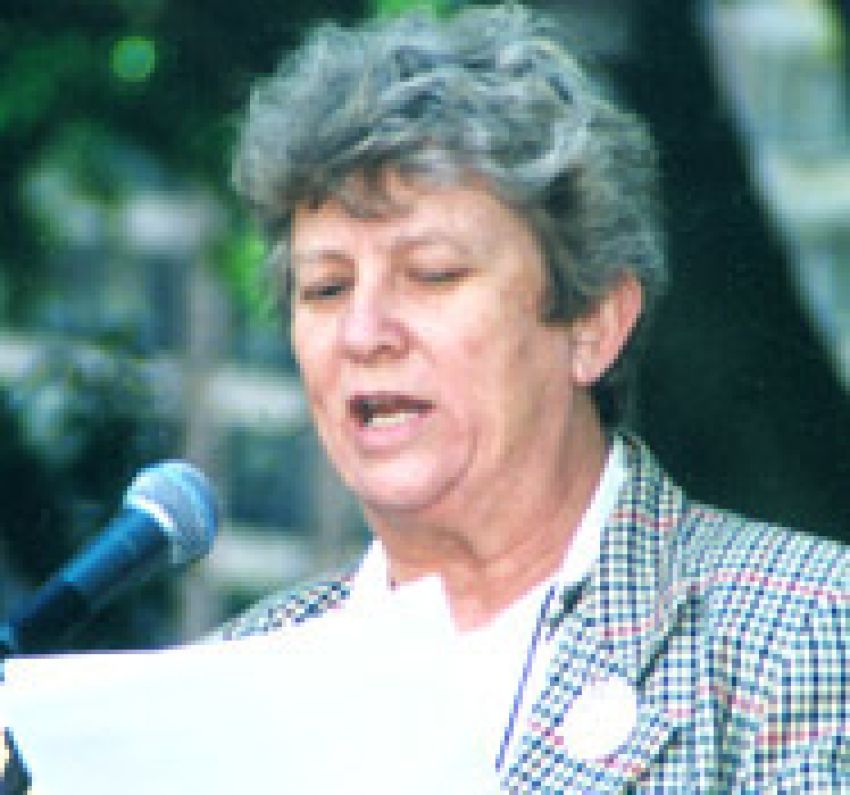
Fatima is a widow and grandmother who has been in Australia for 10 years, living with her family who are financially supporting her. She has no remaining close family in East Timor and has grown very close to her grandchildren here. However, her case for refugee status has been refused and she is now appealing to the immigration minister, Philip Ruddock.
Francisco arrived in Australia in 1994, aged 17, having survived the 1991 Dili massacre. He was not permitted to study at university or TAFE because of visa restrictions. Instead, he found employment in the hospitality industry and worked long hours to provide for himself, his widowed mother and large family in East Timor. If he is forced to return to East Timor, he would have no job, no financial support and no way to contribute to the well-being of his family. His application for refugee status was refused by the immigration department, pending appeal.
After government-imposed processing delays of up to 10 years, many of the claims of 1600-1800 East Timorese asylum seekers in Australia are reaching the final stage of appeal.
As of November 1, around 30 East Timorese living in NSW had had their asylum claims rejected by the Refugee Review Tribunal (RRT).
The front page of the November 8 NT News carried the headline 80 Timorese booted out. A largely sympathetic article explained that 84 East Timorese living in Darwin received letters from the immigration department stating that they had 28 days to leave the country unless they lodged appeals with the RRT.
A campaign has been launched by a range of church and social-justice organisations, calling on the Australian government to create a special visa category to allow the East Timorese to stay in Australia as permanent residents.
In a letter published in the November 16 Sydney Morning Herald and Australian, Sister Susan Connelly from the Mary MacKillop Institute of East Timorese Studies in Sydney condemned the government's actions: Mr Ruddock maintains that litigation by 1800 East Timorese asylum seekers and their advocacy groups over the past seven years has caused delays in processing their claims. This is simply untrue.
In 1995, the Refugee Review Tribunal determined that East Timorese people were Portuguese nationals, and some asylum seekers were rejected by the department of immigration on the basis of that judgement. These attacks on the very identity of the East Timorese people were challenged, surely a fundamental right. Three times in 1997, 1998 and 2000 the Federal Court found against the department.
Mr Ruddock also suggests that the asylum seekers have been trying to outwit Australia by hanging on for as long as possible. This is beneath contempt. Had their claims been processed when they arrived here in 1994-95, they would have been deemed refugees, as were those who came just a few years earlier.
Putting their applications for refugee status on ice had nothing to do with the validity of their claims, and everything to do with politics. The East Timorese asylum seekers have a unique place in Australian society and history. They should be granted immediate access to a special visa on humanitarian grounds.
The persecution that East Timorese asylum seekers faced, at the time most arrived in Australia between October 1994 and April 1995, has not been questioned.
A statistical summary of 147 cases documented by the Refugee Advice and Casework Service in Victoria in 1997 found that: 46% of all applicants had suffered serious assault; 33% had been tortured; 19% had been sexually assaulted (a figure representing 43% of all women applicants); 16% had family members who have been sexually assaulted; 32% had been detained for long periods of time; 55% had a close family member arrested; and 39% had family members killed by Indonesian security forces.
Those whose cases are rejected by the RRT will no longer have the right to work, nor be eligible for any government programs like Medicare, or private assistance, such as Red Cross money. It could take up to four months for an application lodged with the minister to be assessed, during which time families will have no source of income and thus be unable to pay rent and mortgages. Many risk losing their homes.
Some may fit the criteria necessary to lodge a claim for a spousal or close-ties visa, but few will be able to afford the $2000 lodgment fee, which must be paid for each adult and child applying.
A fact sheet on the campaign web site points out that there have been special intakes of East Timorese on five separate occasions: in 1977, 1980, 1984, 1991 and 1994. There is also a precedent for the creation of a special visa. This was done in 1989 in order to allow Chinese students to remain in Australia.
To find out more, visit the campaign web site (archive only). There is an online petition which has received more than 2200 signatures since it was started in early November. Add your signature and comments (archive only).